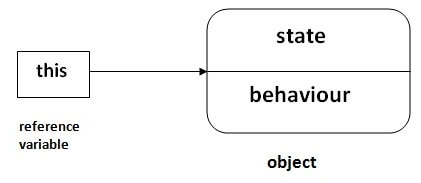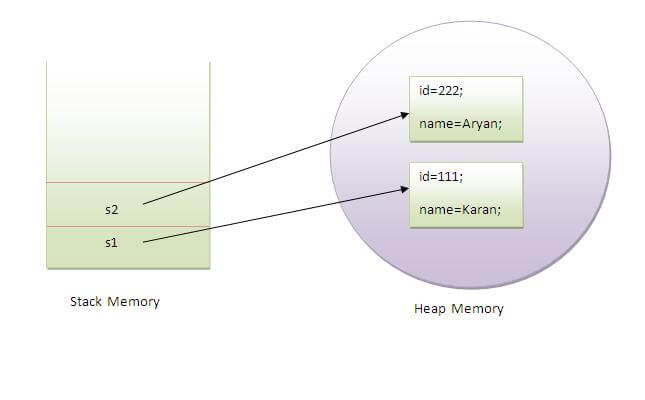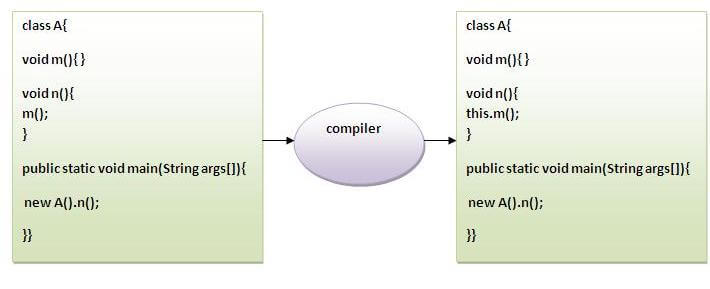this keyword in java
There can be a lot of usage of java this keyword. In java, this is areference variable that refers to the current object.
Usage of java this keyword
Here is given the 6 usage of java this keyword.
- this keyword can be used to refer current class instance variable.
- this() can be used to invoke current class constructor.
- this keyword can be used to invoke current class method (implicitly)
- this can be passed as an argument in the method call.
- this can be passed as argument in the constructor call.
- this keyword can also be used to return the current class instance.
Suggestion: If you are beginner to java, lookup only two usage of this keyword.

1) The this keyword can be used to refer current class instance variable.
| If there is ambiguity between the instance variable and parameter, this keyword resolves the problem of ambiguity. |
Understanding the problem without this keyword
| Let's understand the problem if we don't use this keyword by the example given below: |
- class Student10{
String name;
student(int id,String name){
id = id;
name = name;
}
void display(){System.out.println(id+" "+name);}
public static void main(String args[]){
Student10 s1 = new Student10(111,"Karan");
Student10 s2 = new Student10(321,"Aryan");
s1.display();
s2.display();
}
}
Output:0 null
0 null
| In the above example, parameter (formal arguments) and instance variables are same that is why we are using this keyword to distinguish between local variable and instance variable. |
Solution of the above problem by this keyword
//example of this keyword
class Student11{
int id;
String name;
Student11(int id,String name){
this.id = id;
this.name = name;
}
void display(){System.out.println(id+" "+name);}
public static void main(String args[]){
Student11 s1 = new Student11(111,"Karan");
Student11 s2 = new Student11(222,"Aryan");
s1.display();
s2.display();
}
}
Output111 Karan
222 Aryan
| If local variables(formal arguments) and instance variables are different, there is no need to use this keyword like in the following program: |
Program where this keyword is not required
class Student12{
int id;
String name;
Student12(int i,String n){
id = i;
name = n;
}
void display(){System.out.println(id+" "+name);}
public static void main(String args[]){
Student12 e1 = new Student12(111,"karan");
Student12 e2 = new Student12(222,"Aryan");
e1.display();
e2.display();
}
}
Output:111 Karan
222 Aryan
2) this() can be used to invoked current class constructor.
The this() constructor call can be used to invoke the current class//Program of this() constructor call (constructor chaining) class Student13{ int id; String name; Student13(){System.out.println("default constructor is invoked");} Student13(int id,String name){ this ();//it is used to invoked current class constructor. this.id = id; this.name = name; } void display(){System.out.println(id+" "+name);} public static void main(String args[]){ Student13 e1 = new Student13(111,"karan"); Student13 e2 = new Student13(222,"Aryan"); e1.display(); e2.display(); } }
constructor (constructor chaining). This approach is better
if you have many constructors in the class and
want to reuse that constructor.
Output:
default constructor is invoked
default constructor is invoked
111 Karan
222 Aryan
Where to use this() constructor call?


No comments:
Post a Comment